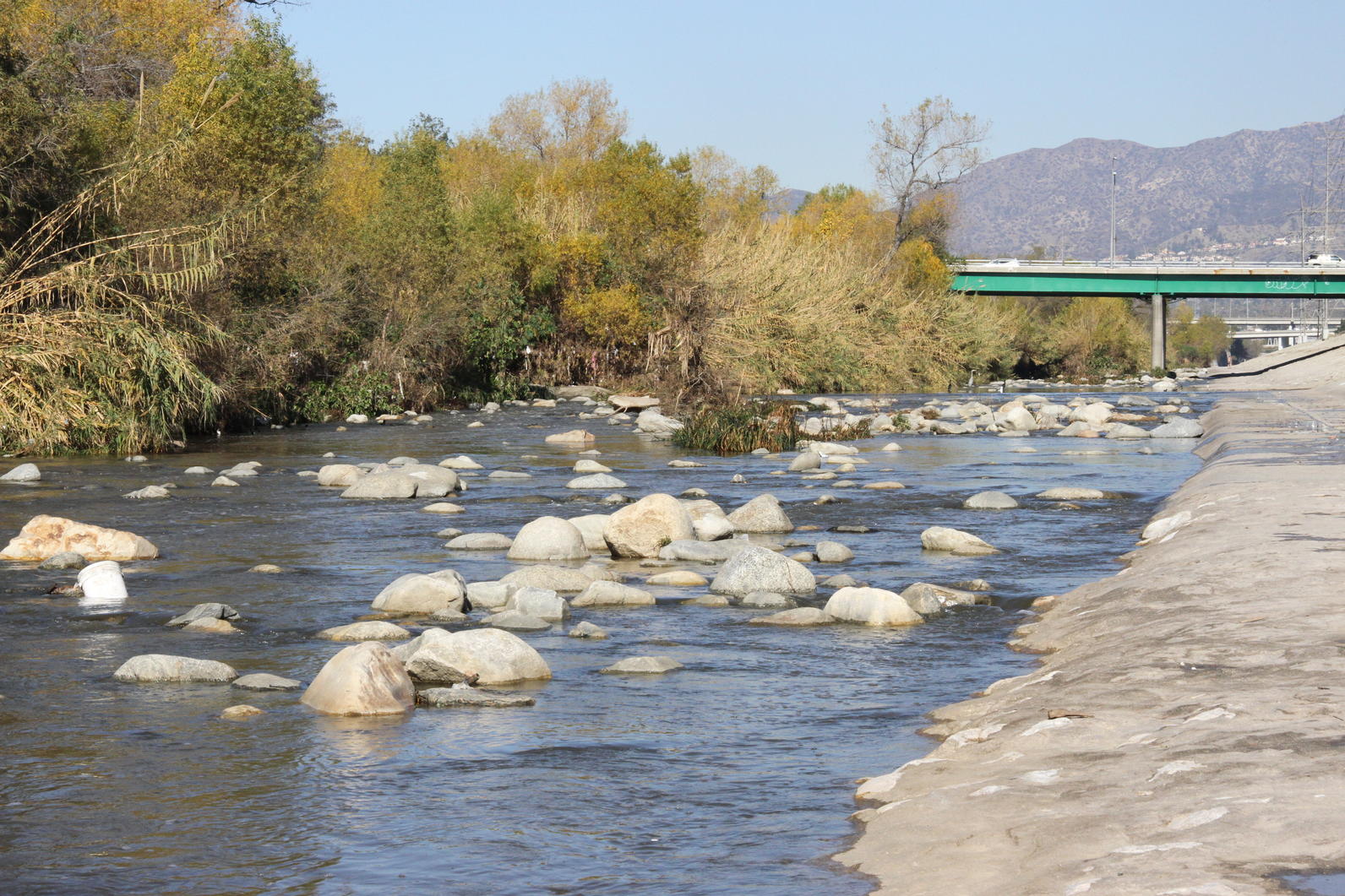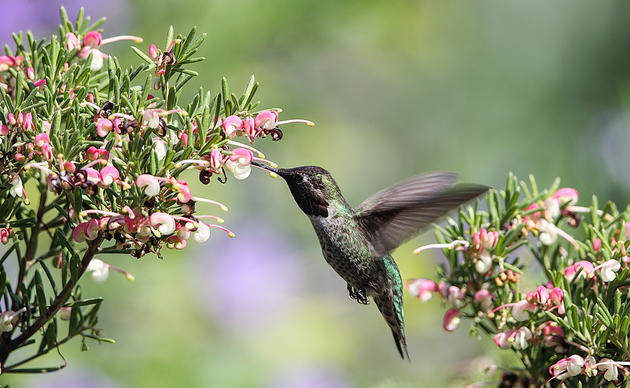
Momentum has been growing for several years to revitalize the Los Angeles River, with multiple nonprofit groups involved, and increased public investment.
This has been welcome news to Marcos Trinidad, who for years has been trying to raise awareness that the river, despite its concrete walls and fencing, is actually a remarkable habitat for dozens of bird species. On any given day, you can see a wide array of egrets, herons, swallows, stilts, and other birds.
Through bird walks and nature tours, Trinidad saw an opportunity to open people’s eyes to the nature that exists in this urban landscape. Throughout his career in conservation, he has been testing out programs that bring people to the river.
“For so long, people didn’t realize the incredible potential of the Los Angeles River to build community around nature,” says Trinidad, director of the Audubon Center at Debs Park. “My goal has been to find some way to engage the community around birds and habitat.”
With a new project linked to the Audubon Center, Trinidad has hit upon the formula. Using funds from the recent Proposition 1 water bond, and in partnership with the Santa Monica Mountains Conservancy, Audubon is organizing volunteers to enhance habitat in three pocket parks along the Los Angeles River with native, bird-friendly plants.
Cindy Casteneda, the center’s conservation program coordinator, has been organizing habitat enhancement events at the three parks since last summer. At each event, five to fifteen volunteers install native plants from Audubon’s native plant nursery at Debs Park.
“Our volunteers have been a mix of people from Debs Park and others from the neighborhood,” says Trinidad. “We’re growing a nice base of volunteers and have great buy-in from the community.”
He mentioned that one volunteer from the neighborhood, who also organizes community bike rides along the river, approached Castaneda about putting together Birding and Bikes events. These events will create even greater awareness about the birds of the Los Angeles River.
Addressing displacement
When Trinidad was designing this new program, he took the opportunity to address one of the biggest challenges to conservation in low-income, urban neighborhoods.
“One of the biggest challenges for conservation projects like this in Los Angeles is belief in the community that these kinds of improvements will drive up rents and displace long-time residents,” he explains. “This belief is particularly prevalent in neighborhoods along the river, where people have seen this displacement firsthand following new public investment.”
Trinidad noted that one neighborhood group declined to support a proposed park clean-up event sponsored by the Audubon Center at Debs Park for this very reason.
A key part of Audubon’s new pocket park program is to partner with the Southeast Asian Community Alliance and Public Counsel to identify strategies to address myths about parks and displacement, and develop ways to build public support in difficult political environments for green infrastructure. This could involve the creation of a toolkit for conservation groups, neighborhood leaders, and residents.
“There’s this notion among conservation groups that ‘if you build it, they will come,’ but that’s not really how it works,” says Trinidad. “When you lay the groundwork for trust in these communities ahead of time, the results can be inspiring.”
Bring on the birds
In addition to this new project emerging from the Audubon Center at Debs Park, Audubon California is taking a closer look at how the birds of the Los Angeles River can play a part in its resurgence.
“There’s so much happing right now around the river, and it’s really important that the birds play a part in all this,” says Trinidad. “People are drawn to birds, and that’s a great entry point for people to get engaged.”
You can help. If you’re interested in participating in one of our habitat enhancement volunteer days, contact the Audubon Center at Debs Park via email at debspark@audubon.org or by calling (323) 221-2255.
By Garrison Frost
Monthly Giving
Our monthly giving program offers the peace of mind that you’re doing your part every day.




